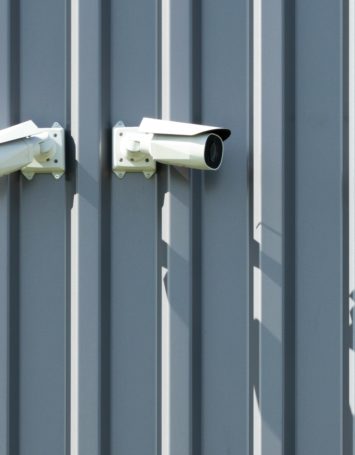Article by Clyde Shuman
The U.S. Court of Appeals for the Federal Circuit once again has confirmed that the Patent Trial and Appeal Board (“Board”) may not address whether patent claims are indefinite in the context of an inter partes review (“IPR”) proceeding. In Samsung Electronics America, Inc. v. Prisua Engineering Corp., Nos. 2019-1169, 2019-1260, the Court also held that finding a claim subject to IPXL-type indefiniteness does not necessarily preclude the Board from addressing the patentability of the claim under 35 U.S.C. §§ 102 and 103 in an IPR proceeding.
The patent at issue was directed to “generating an edited video data stream from an original video stream” by “substituting at least one object . . . in said original video stream by at least a different object.” A user can insert a selected image, such as a face of the user’s choosing, in place of the face of the figure in the original video.
After the patent issued, the inventor formed Prisua to commercialize the claimed invention. In 2016, Prisua sued Samsung Electronics America, Inc., and other Samsung entities, alleging that Samsung’s “Best Face” feature on its devices infringed at least four claims of the patent. Samsung subsequently petitioned for inter partes review of claims 1-4, 8 and 11 on four separate grounds. The Board initially determined that it would review only whether claim 11 was obvious over a patent publication known as Sitrick, saying that it could not determine the scope of claims 1-4 and 8.
The Board concluded that claim 1 was indefinite under the Federal Circuit’s decision in IPXL Holdings, LLC v. Amazon.com, Inc., 430 F.3d 1377, 1384 (Fed. Cir. 2005). The Board also concluded that another limitation in claim 1 invoked 35 U.S.C. § 112, ¶ 6, and that the petition failed to identify corresponding structure, as required. The Board found that dependent claims 4-8 also were indefinite and concluded that the petitioner had not “established a reasonable likelihood of prevailing in showing that claims 1–4, and 8 are unpatentable under any of the asserted grounds.”
While the IPR was still pending, the Supreme Court decided SAS Institute, Inc. v. Iancu, 138 S. Ct.1348 (2018), holding that when the Board institutes an IPR, it may not pick and choose which claims it will address, but must address the patentability of every claim challenged by the petitioner. In light of the Supreme Court’s decision, the Board modified its institution decision to include all the challenged claims and all the grounds presented in the petition, and allowed supplemental briefs and evidence addressing newly added claims and grounds.
Prisua argued, inter alia, that the Board lacked statutory authority to cancel claims for indefiniteness during an IPR. Samsung, for its part, urged the Board to find the claims indefinite under IPXL. Alternatively, Samsung argued that the Board could apply the prior art to the claims, saying that the IPXL issue would not pose an obstacle to determining whether those claims could be measured against the prior art. Samsung also argued that the claims included a sufficient recitation of structure and did not invoke § 112, ¶ 6.
In its final written decision, the Board repeated its conclusion that claims 1–4 and 8 were indefinite under IPXL. The Board again held that claim 1 and its dependent claims invoked § 112, ¶ 6, and that because there was no corresponding structure in the specification, it could not apply the prior art to the claims. The Board thus held that Samsung had not established that claims 1–4 and 8 were unpatentable under any of the asserted grounds.
For claim 11, the Board found that all claim limitations would have been obvious in light of Sitrick.
On appeal, the Federal Circuit began by rejecting Samsung’s argument that the IPR statute authorizes the Board to cancel challenged claims for indefiniteness, citing the Supreme Court’s decision in Cuozzo Speed Techs., LLC v. Lee, 136 S. Ct. 2131, 2141–42 (2016) and its own (non-precedential) opinion in Google LLC v. Network-1 Techs., Inc., 726 F.App’x 779, 782 n.3 (Fed. Cir. 2018).
Here, the Court was unequivocal: “[W]e hold that the Board may not cancel claims for indefiniteness in an IPR proceeding.”
As a result, the Court held that Samsung was not permitted to request that the Board cancel claims 1–4 and 8 on the ground that they were indefinite, nor could the Board do so sua sponte.
The Court rejected Samsung’s argument that various provisions in the IPR statute, 35 U.S.C. § 311(b), authorized the Board to cancel claims for indefiniteness after an IPR has been instituted. Inter alia, the Court found that reading § 318(a), relating to final written decisions, to allow the Board to entertain grounds apart from §§ 102 and 103, would divorce § 318(a) from the rest of the IPR statute, which is expressly limited to patentability under §§ 102 and 103.
The Court also rejected Samsung’s argument based on the post-grant review statute, for allowing claims to be cancelled as indefinite at the conclusion of an IPR proceeding. Specifically, Samsung argued that similarity in language (“patentability”) in the final written decision provision for both statutes, meant that Congress intended to authorize the Board, in an IPR proceeding, to consider grounds of unpatentability other than those raised in the petition, such as indefiniteness. The Federal Circuit disagreed, finding that the term “patentability” in the two provisions was context dependent.
The Court also rejected Samsung’s contention that the Board’s inherent authority to perform claim construction during an IPR meant that it could cancel the claims as indefinite. Rather, per the Court, “the proper course for the Board to follow, if it cannot ascertain the scope of a claim with reasonable certainty for purposes of assessing patentability, is to decline to institute the IPR or, if the indefiniteness issue affects only certain claims, to conclude that it could not reach a decision on the merits with respect to whether petitioner had established the unpatentability of those claims under sections 102 or103.”
As for Samsung’s secondary argument, that the IPXL issue did not prevent the Board from assessing the patentability of claims 1 and 4–8 under §§ 102 or 103, the Court agreed that the Board erred in finding that the claim term “digital processing unit” was a “means-plus-function” limitation subject to analysis under § 112, ¶ 6. The Court also remanded for further consideration of whether the Board may analyze the patentability of a claim even if that claim is indefinite under the reasoning of IPXL. As the Court said, “Even though the validity of the challenged claims may be subject to question for IPXL-type indefiniteness, that is simply another ground on which the claims might be challenged in an appropriate forum (other than the Board). It does not necessarily preclude the Board from addressing the patentability of the claims on section 102 and 103 grounds.”
With respect to claim 11, the Court affirmed the Board’s holding that the claim was obvious over the Sitrick reference.



